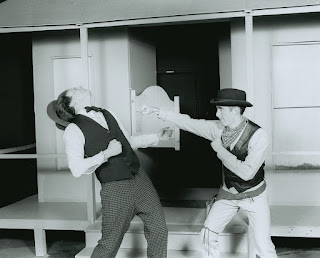Next spring, I'll be part of a panel discussing where writers get ideas. If you're a writer at an event (or anywhere else, for that matter), you can give odds that someone will ask you that question. There are several snarky answers non-writers don't understand: Joyce Carol Oates sends me her rejects; I subscribe to the Idea of the Month Blog and many others. My favorite serious answer comes from Neil Gaiman, who says, "Getting ideas is the writer's job."
Think about it. If you don't have good eye-hand coordination, you don't become a surgeon. If you're bad at math, you don't become a chemical engineer. If you have a poor memory, you don't become an actor.
So...you want to be a writer. How do you do Job One?
There are as many answers as ther are writers, but they fall into a few basic categories. You get a plot idea, or you get a character idea. Rarely, you might get a setting idea (think London's "To Build a Fire").
When I conduct my writing workshop on plotting (or on NANO, which incorporates plot and character), I tell people you need a CHARACTER who WANTS something. Give him or her a backstory that explains why the goal/quest is important, and invent obstacles to prevent him or her from achieving that goal. The obstacles form the plot, but the plot grows from the character. I could go on at great length, but I think you get the idea and I want to spend more time here on plot. When you can do something easily, you don't think about it. When it's hard, you have to figure out how you do it. Plotting is very hard for me because my usual thought process is far from linear.
Plot is a series of events during whch a character meets and overcomes obstacle to achieve a goal (or not).
In 1895, French critic Georges Polti published The 36 Dramatic Situations, a book delineating all the plots he had found in literature to that time. He examined the drama and stories (and maybe opera) in existence at that time and claimed every story followed one of his basic templates. Actually, when I cited the book in my creative writing classes, I pointed out that many of Polti's plots were variations on the same theme. Family feuds could be father-son, mother-daughter, brother-brother, and so on, and he considered each one a distinct plot. I disagreed and felt there were only about a dozen individual situations.
The book is over 125 years old, and nobody has found a new plot since then. Victoria Lynn Schmidt's Story Structure Architect is a modern reworking of Polti's book and adds new variations, some of them involving changing time. I recommend her book because she includes open-ended questions that generate ideas and plot twists. I'll take all the help I can get.
My point here is that THERE IS NOTHING NEW. You won't create a brand-new idea at this point. You can change the names, the setting, or the time period, but that's all. The same story works with knights in armor, as a western, as a contemporary crime story, or as a future sci-fi tale, all with a change of props and setting. Your job is to find the new twist that works for you.
Maybe you find a story in the news or overhear gossip at the mall. It's going to turn into one of those basic plots just because that's all there is/are. Maybe you remember an incident from your own life that mattered for some reason. I have published 16 novels, and six or seven of them were inspired by real events. I changed them from "truth," but the original events really happened. One of my short stories grew from recalling the worst summer job I ever had, one where I quit after one day.
The Greek and Roman playwrights took their inspirations from the myths (I wonder who came up with THEM). Recently, I've read Laura Lippman's Dream Girl, which she tells us up front is her re-working of Stephen Kin'g Misery. Both books involve a writer who is badly injured and at the mercy of a crazy nurse. Last week, I read Don Winslow's new novel City on Fire. It's a crime novel based on gang wars in Providence, Rhode Island in the late 1980s, and it's Winslow's retelling of The Iliad. If you know that work, you can identify the modern versions of Helen, Cassandra, Priam, Patroclus, Hector, and Paris.
How many films and TV shows are spin-offs, borrowing a character or thread from a previous story? Look at the Batman, Superman, Wonder Woman or Marvel Comics franchises. Look at the various incarnations of NCIS and other forensic dramas. Nothin' new here, Jack, but we know how to sell it.
You want to write? Stop beating yourslef up because you don't have a shiny new idea. Take what you like and give it a new paint job.
One of my favorite writing quotes has so many different variations and is attributed to so many different authors that it makes my point yet again:
Poor writers imitate. Great writers steal.



.jpg)

